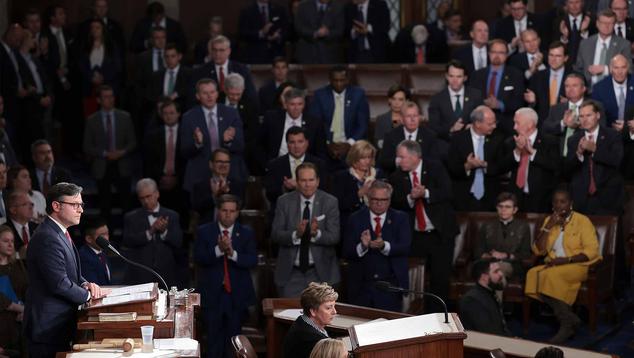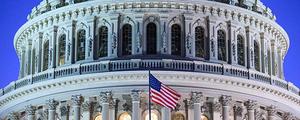Story Highlights
- Approval down four percentage points in past month
- Congressional job approval was last at 13% in 2017
- Democrats’ approval drops from 22% to 10%
WASHINGTON, D.C. -- Amid a prolonged search for a new House speaker that paralyzed the House of Representatives for three weeks while two U.S. allies are engaged in wars, Americans’ approval of Congress’ job performance fell from 17% to 13%. This is the lowest approval rating of Congress since October and November 2017, when it was also 13%, and is just four percentage points above the all-time low from November 2013.
Gallup has measured Americans’ opinions of the job Congress is doing since 1974, including monthly updates since 2001. Congress’ approval rating has mostly been in the teens and 20s since 2010. It has averaged 30% historically.
The U.S. House of Representatives ousted Speaker Kevin McCarthy on Oct. 3 after eight Republican members led a revolt against him. The action came in response to McCarthy negotiating a bipartisan bill to fund the government through mid-November to avoid a government shutdown at the end of the 2023 fiscal year. The eight members objected to McCarthy relying on Democratic votes for passage of the spending bill, in addition to other grievances they had with him.
On Wednesday, after the Oct. 2-23 survey was complete, Republicans elected Louisiana Rep. Mike Johnson as speaker following failed bids by three other Republican House members to replace McCarthy. Now that Republicans have installed Johnson as speaker, the House can resume its business, but it faces a quick deadline to fund the government before the continuing resolution expires on Nov. 17.
The survey also finds Americans unhappy with President Joe Biden’s performance, with his 37% job approval rating tying a personal low for him.
Frustration with government leaders is apparent in Americans’ naming government as the most important problem facing the country, with 19% mentioning that issue. Fourteen percent name the economy and, separately, inflation, while 13% believe immigration is the top policy concern at the moment.
Democrats Responsible for Decline in Congressional Job Approval
Republicans and Democrats are about equally negative in their evaluations of Congress, with 8% of Republicans and 10% of Democrats approving of the job it is doing. For Democrats, the new figure represents a 12-point decline from September. It is the lowest rating Democrats have given Congress since a 9% reading in December 2018, when Republicans controlled both houses of Congress under Republican President Donald Trump.
Republicans’ approval rating is unchanged from September but had declined between August (16%) and September (9%). Republicans have generally been less positive toward Congress this year than Democrats have, even though the GOP has the House majority, albeit a narrow one, after their gains in the 2022 midterm elections. Democrats maintain a majority in the Senate, and their approval of Congress is likely aided by there being a Democratic president in the White House.
Currently, 19% of independents approve of the job Congress is doing, which is unchanged from last month and similar to where it has been throughout 2023.
Roughly equal proportions of Republicans (22%) and Democrats (20%) name the government as the most important issue facing the country, with independents slightly lower at 16%. In September, the three groups were about equally likely to cite the government as the nation’s top problem -- 18% of Republicans, 17% of independents and 19% of Democrats.
Bottom Line
Americans already viewed Congress quite negatively before the recent turmoil over the speakership. Still, that drama further eroded Americans’ image of the legislative branch, primarily among Democrats. Congress’ actions over the next few weeks will help determine if it can regain some of the public trust it has lost in the past month.
To stay up to date with the latest Gallup News insights and updates, follow us on X.
Learn more about how the Gallup Poll Social Series works.
View complete question responses and trends (PDF download).




